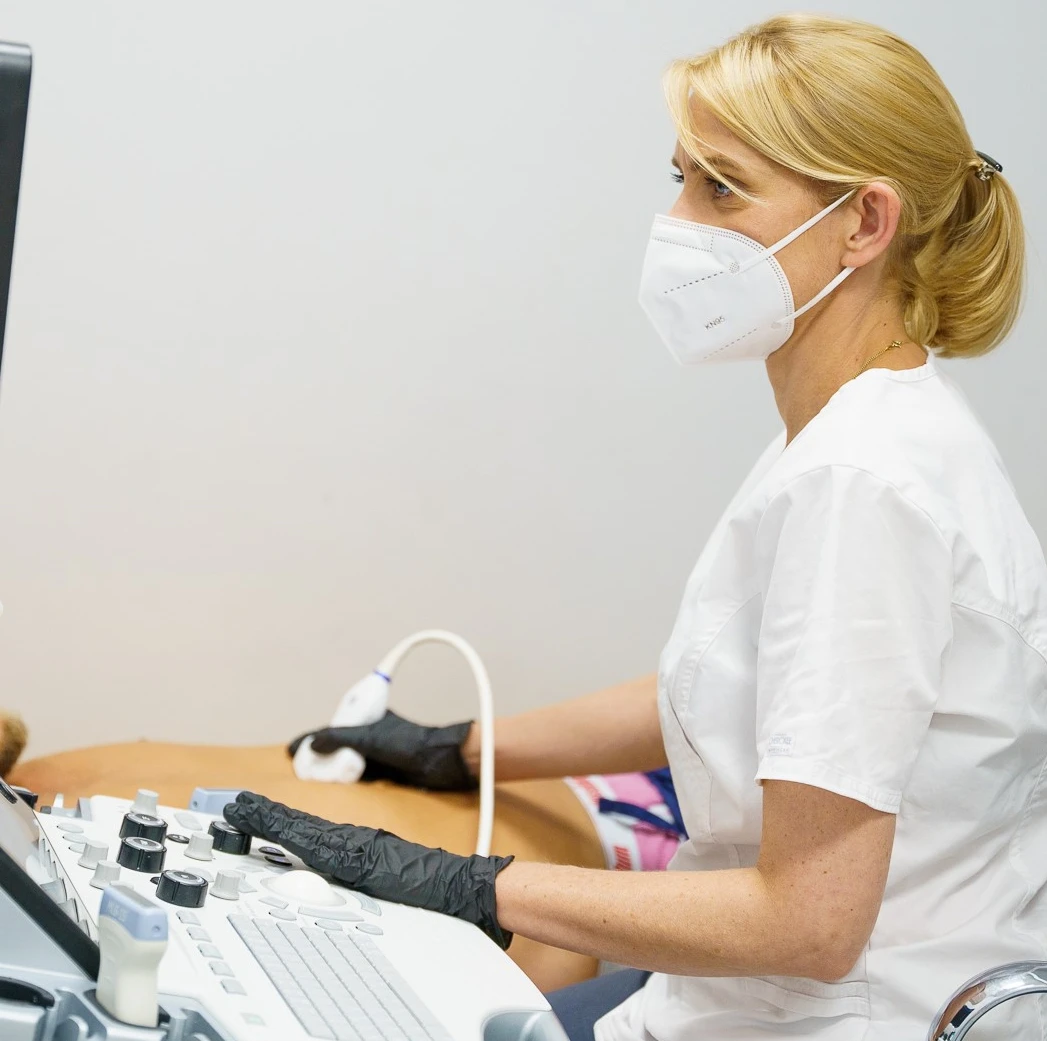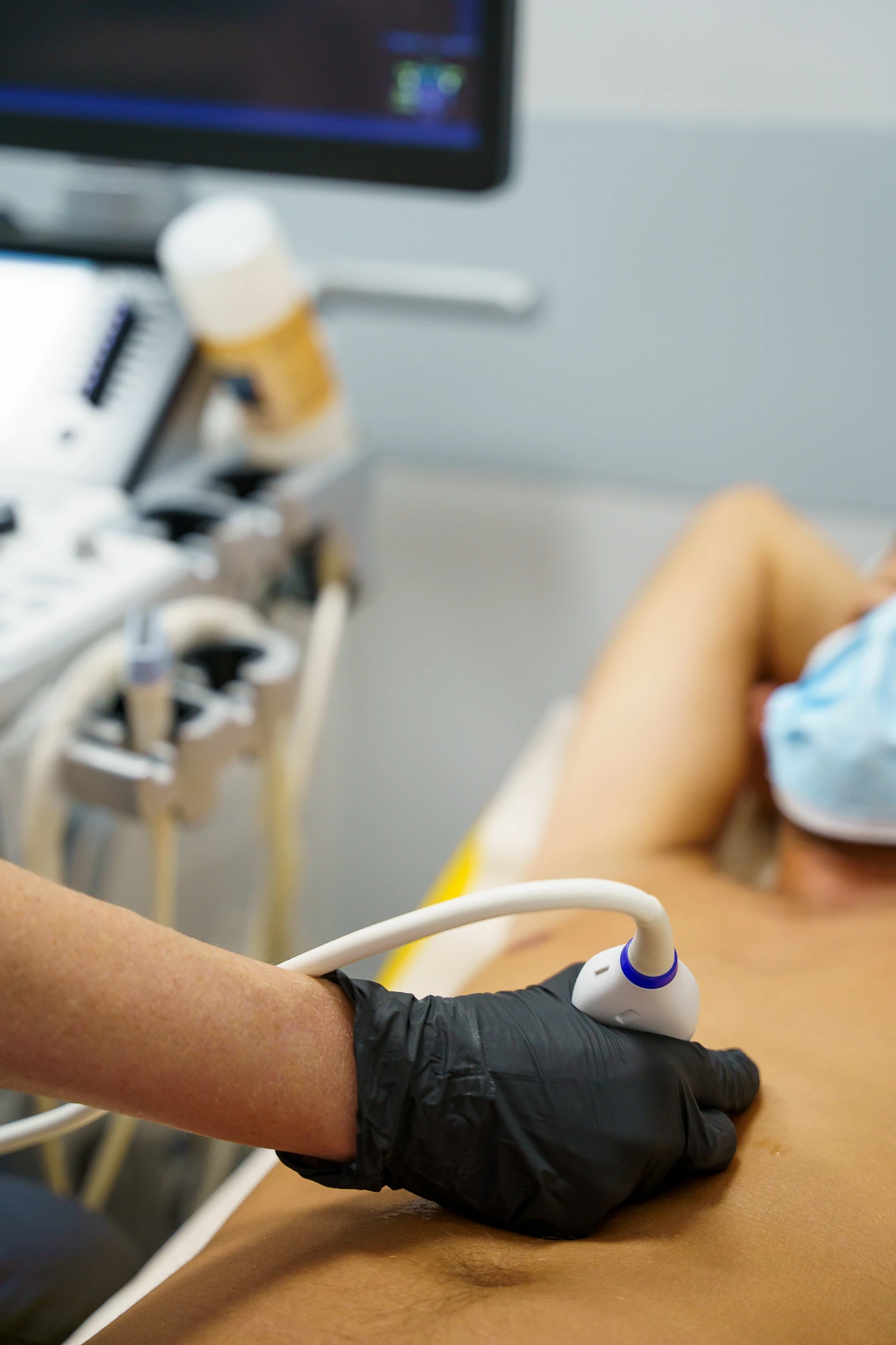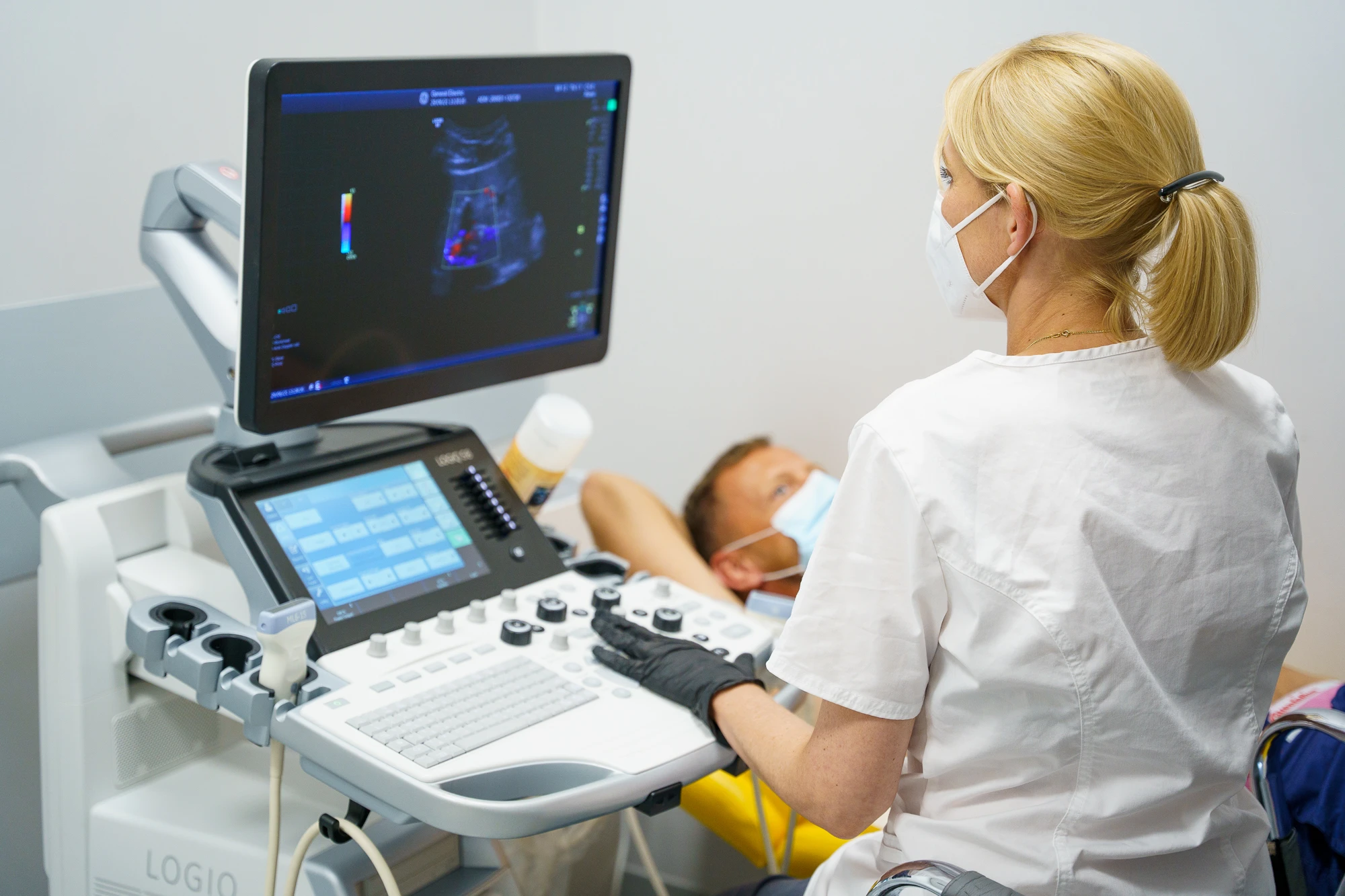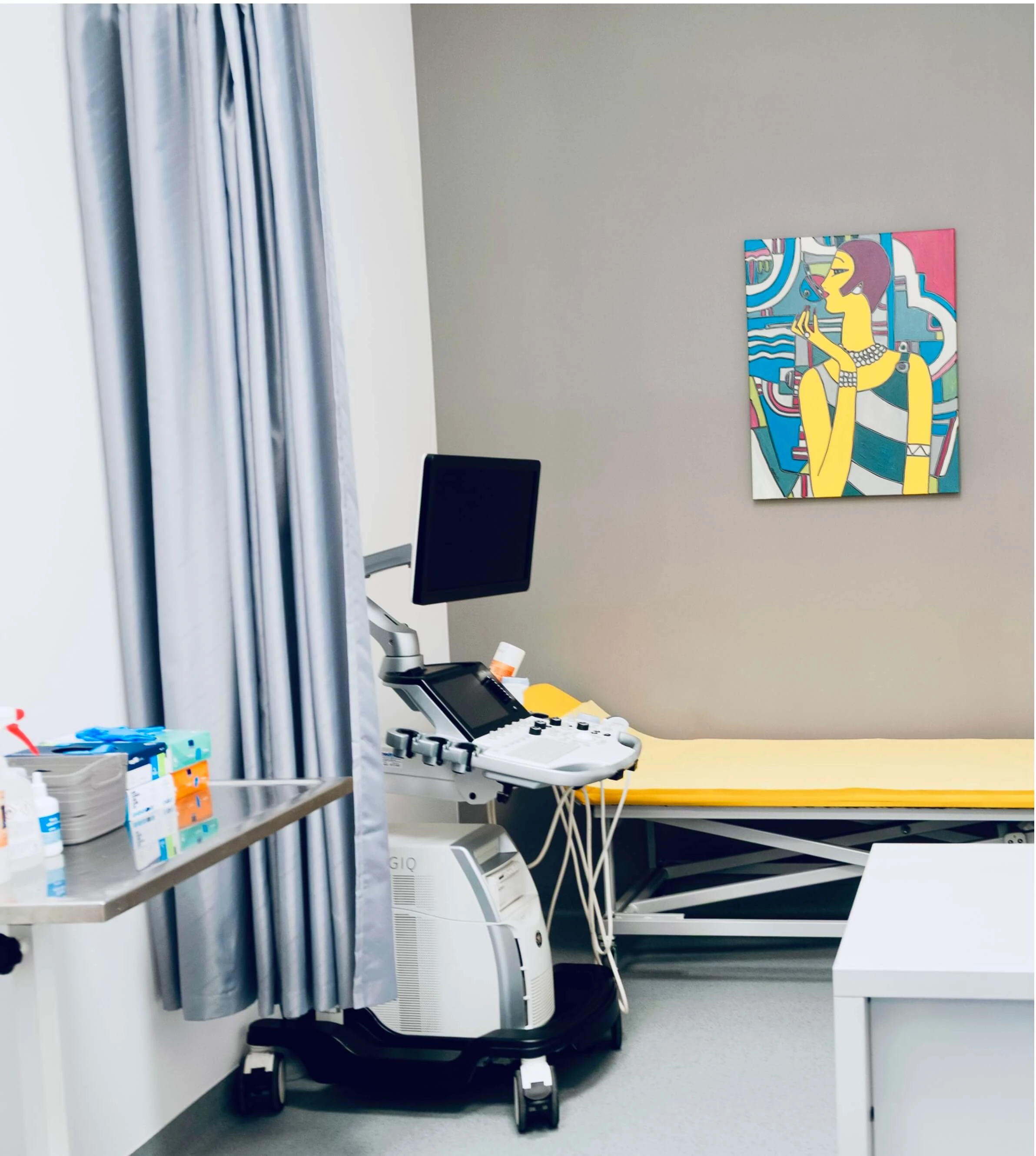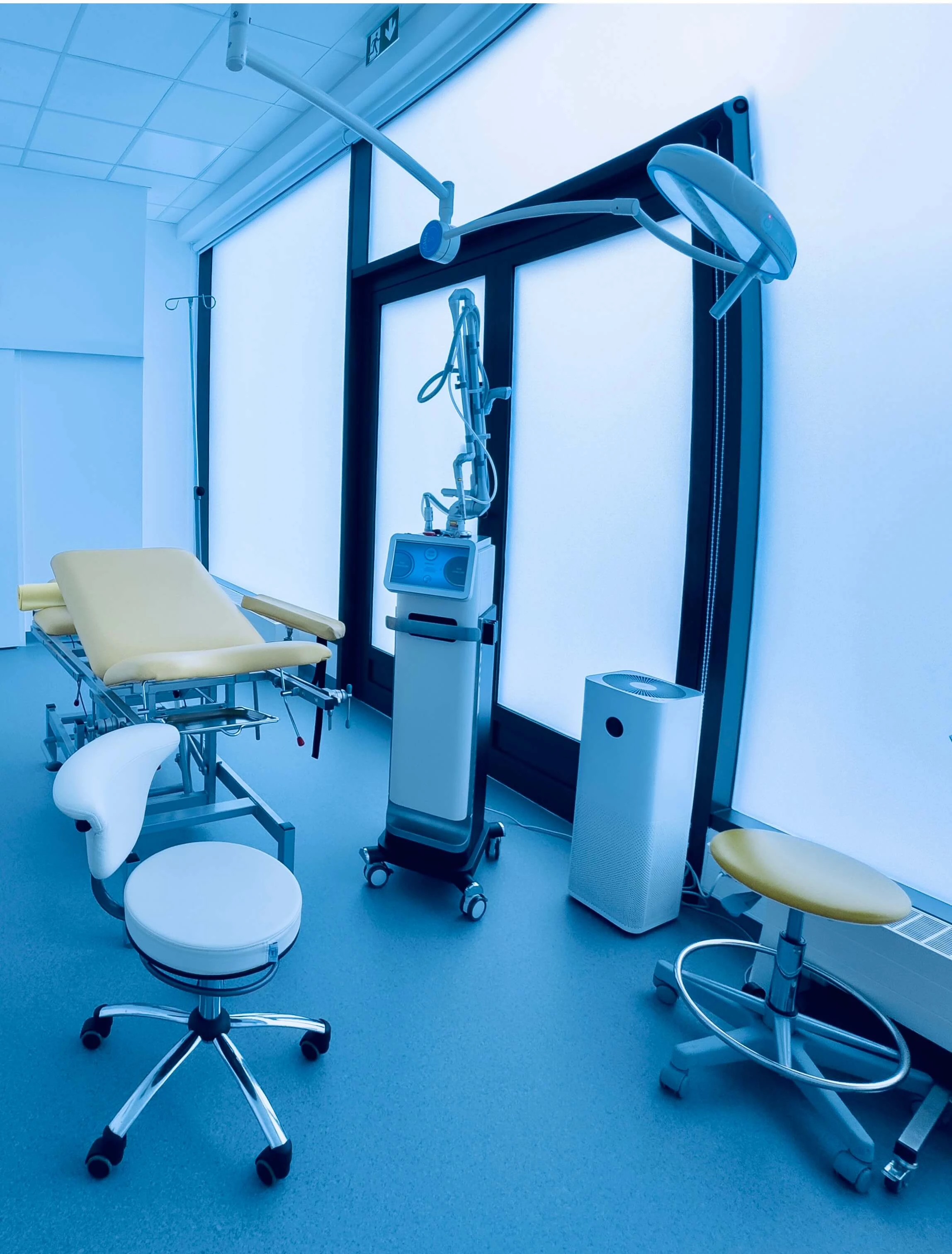Ultrasound of limbs (including Doppler), lymph nodes, thyroid, breast, scrotum, and transrectal ultrasound do not require any special preparation.
However, if an ultrasound examination of abdominal organs is necessary (liver, bile ducts, pancreas, intestines, urinary system - including kidneys, retroperitoneal space), the following guidelines should be strictly followed:
- On the day preceding the date of the examination, please stay on a light, cooked diet, avoiding gas-inducing foods (fried foods, brassica and onion vegetables, legumes, sweets, apples, pears, plums, and fruit juices).
- For 3 days before the examination, you should take two ESPUMISAN tablets 3 times a day (swallowing the capsules whole). Patients with a tendency to flatulence and any patient for Doppler examination of the abdominal cavity should remain on a diet and take ESPUMISAN for two additional days preceding the examination.
- On the day of the examination, please stay on an empty stomach for at least 8 hours, for the Doppler examination observe complete fasting from the morning.
- Patients with a tendency to constipation should use any laxative 2 days before the examination (laxatives and enemas should not be administered on the day before the examination).
Ultrasound examination of the pelvic organs, i.e. the assessment of the bladder, reproductive organs, uterus, adnexa, prostate gland
- If the doctor referring for the ultrasound examination marked "examination with a full bladder" on the referral, then in order to quickly fill the bladder, drink three glasses of non-carbonated mineral water or tea (not milk, juice, or other drinks) 1.5 hours before the examination and do not urinate.
- If your bladder is full, you may urinate a little while waiting for the examination but do not drink any further liquids in the meantime.
For the examination, please bring the patient's full medical record (hospital discharges, results of ultrasound examinations, computed tomography, magnetic resonance imaging, urography with photos, and results of laboratory tests).
Book a Visit
